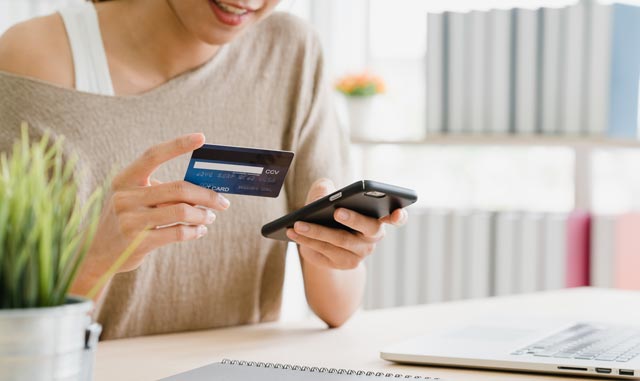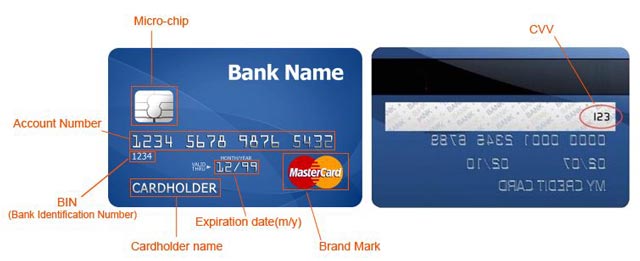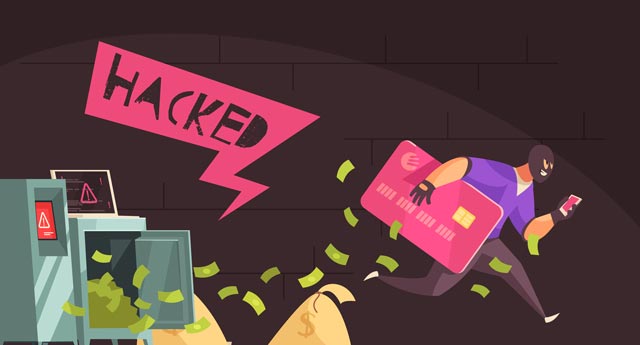What is Online Transaction Fraud? | How to avoid being a victim of online Transaction Fraud?

Though most of you may not be using banking services such as debit card, credit card, net banking, etc., at this stage but as you grow up you may start using the services. Moreover, as a smart citizen you must understand how online transaction fraud can happen so that you can teach others in your family and friends circle.
Online transaction fraud means illegally withdrawing or transferring money from your account to another account by a cybercriminal. Online transition frauds can happen when your login credentials or bank account details or credit card details are stolen by a cybercriminal.
How does it work?
There are many ways used by cybercriminals to cheat people online. Cybercriminals can send an email to you from a fake account that appears to be from your bank or credit card service provider. When you click on the link provided in the email it takes you to a page where your sensitive information like bank account details, card details, card verification value(CVV), expiry date, etc., is asked. Once you share these details, your account can be compromised.
Cybercriminals may fake his/her identity and call you posing as a bank employee and try to obtain credit cards or bank details such as account number, personal identification number(PIN), CVV, expiry date, date of birth, etc. Once such details are given, the account can be compromised.

Usually, our mobile number is linked with a bank account. Cybercriminals may also call you posing as an employee of a mobile service provider and inform you that your mobile number will be disconnected if you do not update your subscriber identification module(SIM). For updating the SIM, they will send you a link or ask you to send an SMS from your number to the service provider.
Actually, they are attempting to make you send an SMS to your mobile service provider to block the existing SIM and issue a duplicate SIM. They obtain the duplicate SIM from the service provide and use it to transact online using your mobile number and banking app.
Total 1785 cases have been reported related to credit/debit card and Internet banking fraud in the year 2017 alone. This amounted to a total loss of Rs.71.48 crores.
Concerned about online transaction frauds? Don’t worry… with the awareness and precautions you can safeguard yourself against online transaction frauds. Please remember if you don’t share your bank and card detail like card number, PIN, CVV, expiry date, and bank account password, etc. with anyone, you may be able to protect yourself against online transaction frauds. You need to be careful and follow safeguards to protect yourself and your friend against such frauds.

Let’s discuss how you can protect yourself from being a victim of online transaction fraud. Don’t forget to share these suggestions with your family and friends.
- Never share your bank and card details such as online account password, card number, CVV, expiry date, PIN, OTP, etc. with anyone. By sharing these details you will compromise your account which can lead to illegal online financial transactions.
- Make it a habit to regularly update the online password of your bank account and the PIN of your Debit/Credit cards.
- Always make it a habit to type bank website yourself when trying to log in to a bank account. You must not click on a link to a bank website appearing on an email, text message, or popup. This may be a fake link and may take you to a fake website. Once you log in to your bank account from a fake website your sensitive details like your Bank account number and password may be stolen.
- Check for the bank’s security certification details and various signs such as green address line, lock sign on the address bar, and HTTPS to confirm you are visiting a secure bank website.
- Always check the website URL starts with HTTPS. The website URL with HTTPS encrypts your data in the website and protects it from any kind of tampering. Do not share your confidential information such as online account password, card number, CVV, expiry date, PIN, OTP, etc. on a website that doesn’t start with HTTPS.
- It is equally important to protect your mobile phone as your mobile number is linked with your bank account. Always use a strong password to open your mobile phone and install good antivirus software. If you receive a call from a mobile service provider informing you that your number will be deactivated if you don’t update it or any other such messages, please be cautious. Disconnect the phone and call the customer care number of your mobile service provider to check if the call was genuine.
- Never install pirated software on your mobile or computer. It is not only illegal but may also compromise the security of your devices. Always install a good antivirus on your computer and mobile phone. It is important to keep your computer software and antivirus up to date.
- Avoid making an online transaction using public Wi-Fi or a computer in a cybercafe. Computers in the cybercafe may not have updated antivirus or may be infected with malware which may compromise your bank details and other sensitive information such as card number, expiry date, CVV, etc.
- Make it a habit to review the monthly statement of your bank account and credit cards. Check if there are any unrecognized transactions.
- If you find that your bank account or card details are compromised/stolen by someone or your debit or credit card is lost, call the bank immediately and block your card/account immediately. If unauthorized transactions have been taken place, you must lodge a formal complaint at your nearest police station.
You May Also Read
- What is Email Fraud? | How to avoid becoming a victim of email fraud?
- Be Alert with this type of risks associated with Online Gaming
- What is Cyber Grooming? | How to avoid being a victim of cyber grooming?
- What is Cyberbullying? | How to be avoided being a victim of Cyberbully?
- Be Aware of Fake KBC & All India SIM Card WhatsApp IMO Lucky Draw Fraud





Is it possible .. I already deposited 2lakha rupees for today sir … Please help me sir … Today only I deposited sir please help me sir
Still he is in contact sir